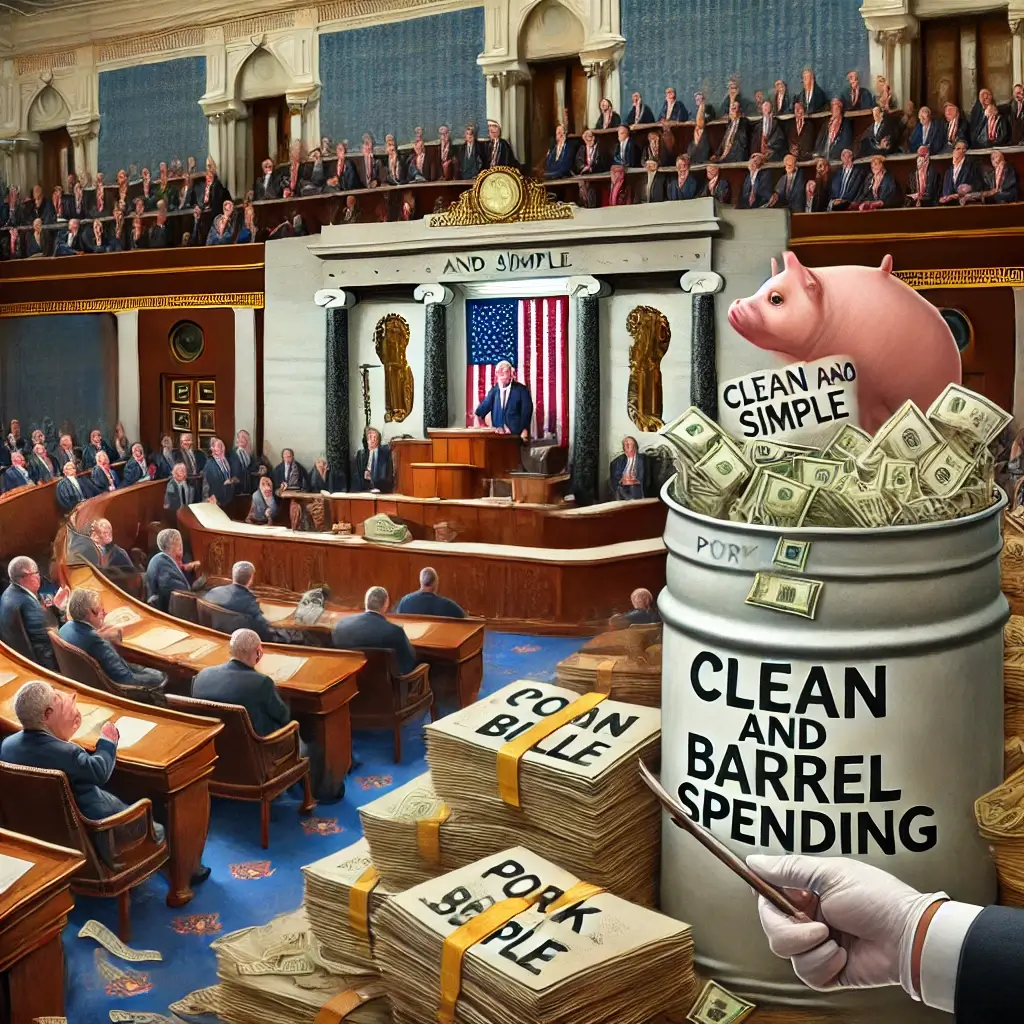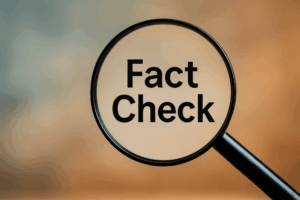
In December 2024, the U.S. Congress finally put the American people first.
They discarded a pork-ridden $1.5 trillion funding bill and instead passed a more streamlined and cleaner version that ensured the government would remain open and operational, while still providing essential disaster relief and agricultural assistance.
What’s more, the original pork-laden bill held hostage a $190 billion cancer research initiative that had already passed the House in March 2024. The senate was under public pressure and passed that bill separately as well.
This is a moment worth celebrating—not because Congress passed a bill, but because they did so with a renewed sense of responsibility, accountability, and public awareness.
A Clean Bill for the People
The original funding package, which was initially presented to Congress, was filled with unnecessary add-ons and political favors that had little to do with the actual purpose of keeping the government funded. It was widely criticized for being a classic example of political “pork”—where lawmakers slip in pet projects and unnecessary spending to gain political favor, often at the cost of important priorities.
The original $1.5 trillion bill was laden with costly provisions, including:
- $500 million for a new sports stadium in a representative’s district: While there’s no denying that local infrastructure is important, taxpayers shouldn’t be asked to fund stadiums as a means to garner political support.
- $1 billion for a “rebranding” effort for federal agencies: Instead of focusing on critical services, a large sum was earmarked to redesign logos and promote the image of government institutions.
- $750 million for corporate tax breaks for certain large corporations: Instead of investing that money into public services, this provision would have further enriched the already profitable private sector, leaving the average American taxpayer to foot the bill.
- $300 million for pet projects in specific districts: While the details of these local earmarks varied, they were typically unrelated to the overall national interest and served mainly to secure votes from certain lawmakers.
This was the kind of legislation that has long frustrated the American public—large amounts of taxpayer money spent on items that seemed disconnected from real-world needs. It was the kind of bill that would have pushed through a massive government shutdown and created significant fiscal strain while doing little for the people who needed the most help.
However, after a wave of public outcry and increased pressure from citizens, activists, and influencers on platforms like X (formerly Twitter) and podcasts, Congress listened.
Disaster Relief and Agricultural Assistance
In a clear break from the original, bloated bill, Congress passed a much cleaner funding package that kept the government running while still addressing urgent needs. The new bill included $100 billion in disaster relief, helping those devastated by the catastrophic wildfires, hurricanes, and floods of 2024. It also provided $10 billion for agricultural assistance, supporting the farmers and ranchers who have been hit hardest by supply chain disruptions, labor shortages, and extreme weather.
This was a victory for the people—an acknowledgment that immediate, targeted relief was needed, not only for communities impacted by natural disasters but for an agriculture sector struggling to keep up with an increasingly volatile climate.
Cancer Research: Politics and the Art of the Deal
One of the most telling aspects of the funding negotiations was the removal of a critical cancer research initiative—a glaring sign of the political gamesmanship at play. The original pork-laden bill held hostage a $190 billion cancer research initiative that had already passed the House in March 2024. For months, it remained tied up in the omnibus bill, subject to delay as lawmakers used it as a bargaining chip.
It became painfully clear that politicians had held back on funding cancer research because they wanted to make the overall bill look more attractive. By packaging the cancer initiative in the same bill as the pork-laden projects, they hoped to convince the public that the entire package was beneficial.
The strategy was simple: make the bad look good by throwing in something everyone could agree on.
But as the public became more aware of this manipulation, the pressure mounted. Cancer research should not be a pawn in political games.
With widespread outcry, lawmakers were finally shamed into passing the cancer research initiative as a separate, standalone bill, ensuring that the funds would go directly to where they were needed without the distractions of corporate tax breaks or rebranding efforts.
This move exemplified how politics works—by using popular issues like cancer research to make deeply flawed legislation seem more palatable. Thankfully, the public’s awareness and activism pushed Congress to finally separate the two and do the right thing.
The American Public’s Role: Awareness and Advocacy
The pressure to clean up the bill and focus on what really mattered wasn’t just a result of political will—it was the power of an informed public.
Thanks to influencers on social media, podcasts, and other channels, Americans were made aware of the bill’s true contents. Many voices, from political commentators to everyday citizens, used platforms like X to amplify the message, demanding a cleaner bill that prioritized public welfare over political favors.
Podcasts played a crucial role in explaining the details of the bill, breaking down the complex language and ensuring that people understood exactly what was at stake. This created a groundswell of public engagement, leading to organized calls to action, petitions, and social media campaigns.
As a result, Congress couldn’t ignore the voices of the people—they had no choice but to act in their favor.
A Step Toward Accountability
The passing of this cleaner bill, free from the worst elements of political favoritism, is a testament to the power of public advocacy.
It’s a reminder that when people stand up, speak out, and demand better from their representatives, real change can happen.
Congress may have faltered in its original approach, but in the end, they acted for the people. They passed a bill that met urgent needs—disaster relief and agricultural assistance—while finally pushing forward the critical cancer research initiative. It was a win for the American people and a rare example of politics working for the public good, not for political gain.
This should be a moment of reflection for both lawmakers and citizens alike.
The way forward is clear: when the people are informed, engaged, and unafraid to make their voices heard, they can demand better from their government.
Let’s hope this is a turning point.

